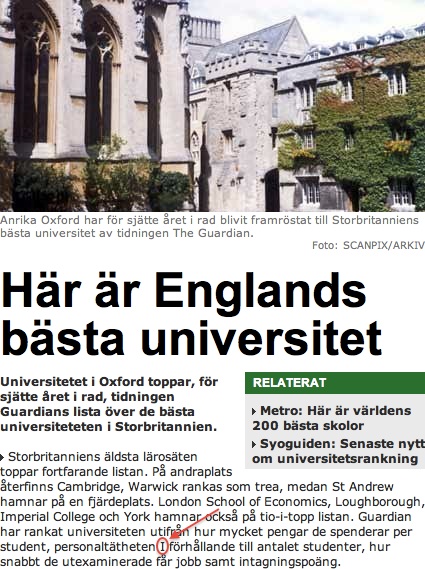Home » Industry Watch » The Technological
More Viewers Than JeopardySome things never change. Others change only very slowly. A Swedish fairy tale.
Once upon a time WordPerfect ruled the world. That was back when the mini was the most prevalent computer form for the office. WordPerfect was almost universal.
WordPerfect had a code pane at the bottom of its window. The user could directly specify how characters in the final product would be rendered.
Four programmers from Microsoft wrote Word for the early IBM PC. Function key menus at the bottom of the screen and all that. It wasn't bad and it wasn't good. Object linking and embedding hadn't quite made it. And WYSIWYG? What's that?
Then Microsoft got Windows 3.1 out the door and things changed rapidly. WordPerfect accused Microsoft of sabotaging their product. They used bitmaps and hit tests to create property sheets and dialogs. They used a light gray background. Microsoft tried to play catchup. Their new ad hoc MFC put in incredibly unwieldy hooks to achieve the same gray background because their dialog templates had no provision for it.
Microsoft also started releasing survey results showing MS Word was the most popular word processor for Windows. The results were questionable at best - the product hadn't been out long enough to make any major market points. WordPerfect countered by releasing survey results of their own. WordPerfect still was #1.
Everybody knows who won that war. WordPerfect and Borland allied against the Redmond juggernaut but the Redmond juggernaut had Borland in their sights too. Too bad for both of them.
Object linking and embedding was still a big thing. People liked to publish their documents on a tree product called 'paper'. Put in a pie chart or a histogram from Excel in a Word document. Put in some other stuff too. Send it all to the colour laser printer. Art.
This of course was before the advent of the web revolution. Today when publishing is completely automated and systems like Vignette rule, news copy needs to be plain text so the system can format pages correctly. Journalists no longer need MS Word or other word processors - they need plain text editors.
Products like MS Word are total overkill today. They're also unnecessarily expensive. But unfortunately in Sweden they're still the norm.
'More viewers than Jeopardy', said the big motorway billboards in Sweden. Microsoft Windows was that big. Sweden was so saturated with Windows that Microsoft gave the country a special status and a special software testing lab in the suburbs of the capital city. Microsoft of Redmond did all they could to conquer the tiny country to the exclusion of the competition. Help desks in Redmond would call developers in Sweden on their dime to help get their software up and running. The 'good old days'.
Journalists don't take to technology easily but journalists in Sweden are slower than others. Sweden alone of the Scandinavian countries still cannot spell 'iPad', 'iPhone', 'iPod', and 'iTunes'. And why not? Because MS Word gets in the way.
MS Word has this 'fabulous' 'auto-correction spelling' that all good Swedish journalists always have turned on. Unfortunately this 'feature' is mostly a pain in the arse. The good journalists of Sweden could always check their articles once they'd finished writing them for spelling and other errors. But that'd probably be too much work.
What to do if glorious MS Word makes a mistake in its auto-correction? One has to go back to what's been incorrectly changed and change it back again. MS Word will in such a scenario back off - it won't fuck with things again. Not at that place at least.
The word 'I' in the English language is the first person singular pronoun. It's always UPPER CASE. But the same word 'i' in Swedish is an adverb. And only capitalised when it starts a sentence. But MS Word doesn't really grasp the fact that Swedish journalists are writing in Swedish, not English, and even if it could, the Swedish journalists don't really care.
So instead of seeing 'iPad' you see 'Ipad', instead of seeing 'iPhone' you see 'Iphone', instead of seeing 'iPod' you see 'Ipod'. And so forth. These are the brand names of Apple. Yet being careful about printing these brand names correctly isn't important to them. They don't really care. They're fucking lame.
Here's a recent example from the website of the original Swedish Metro. It's an article about the UK's best universities. Down at the bottom of this typical Metro article of typical length and typical value you can see the Swedish preposition 'i' circled in red with a red arrow pointing to it.

The 'i' is a Swedish preposition. But the unnamed journalist is running MS Word. And so MS Word has auto-corrected from the correct 'i' to the incorrect 'I' and the journalist simply didn't give a flying fuck and submitted the copy 'as is' to his editor. Lame.
There's no other country in the world that abuses Apple brand names like Sweden. Not Norway or Denmark or Finland or Iceland. Only Sweden. Where Windows has more viewers than Jeopardy. Even to this day. Where Finland Swede Linus Torvalds did get an honorary doctorate from the Royal Institute but Bill Gates got his own the year after. Bill Gates brought MS Word to every Swedish journalist's desk.
Sweden is perhaps the most Windows-centric country in the world. More than people in almost any other country, Swedes see the Internet only through the eyes of their Microsoft products. Most of them still don't understand the character sets they get from Microsoft are not a universal standard and do not translate to use on the web.

An overwhelming majority of Swedish websites use the weird and dangerous IIS/ASP - which thankfully has a waning market share on the web in general but totally dominates in Sweden - even amongst developers. This web server software has been totally condemned by the GAO and Gartner but is still popular in Sweden for one reason only: it comes from Microsoft. The Apple market exists - and primarily today through mobile devices - but Linux is almost unheard of. Major training institutes ignore it. As do many major corporations.
Swedish websites can look ghastly - splotches where sensible characters should be seen. And it's not just their 'ÅåÄäÖö' - it's also Microsoft's 8-bit ASCII that doesn't want to translate. Blog engines such as Wordpress use UTF-8 as default so Swedes running blogs today never realise they never had a clue. For the most part they never see how crappy their websites are anyway: everyone they know uses Windows!!1!
But let someone outside Sweden see it... One shudders to think what others think of Sweden today.
All they need is one of the following on every page. But most of them have NFC. And again: this isn't particular to people anywhere else - it's only in Sweden.
<meta http-equiv="content-type" content="text/html; charset=UTF-8">
<meta http-equiv="content-type" content="text/html; charset=iso-8859-1">
The world outside seems pretty much in agreement about standards. Microsoft are notoriously against any standard they don't own and completely control. And Sweden is their home away from home for this type of thinking.
'Välkommen till Sverige - här använder vi Microsoft Windows.'
See Also
The Technological: iSweden
|